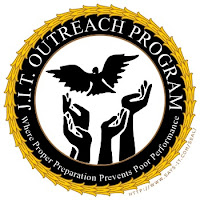The Mission:
We are seeking to help them strive Educationally, Economically, Politically, to build Social Development Skills, Organizational Skills and Unity. And if we use these six (6) elements I just mentioned as a guiding light, we believe that they will grow and develop into our future leaders of tomorrow. In the visions of this program and through this programs’ vision they’ll become a reckoning force of power beyond boundaries and without measures. If they trust, look, listen, and learn to see everything placed before them in its entire form, and to that all they have to do is keep their eyes, ears, and mind open and they will learn. All they have to do is use everything they have learned from our program to gain an advantage in life. With the concept of the five (5) P’s, which is our motto and stands for: Proper Preparation Prevents Poor Performance. Thus, meaning if we Properly Prepare them for the future we can Prevent Poor Performance in their lives--by giving them stepping stones instead of stumbling blocks--and that poor performance is being involved in drugs, guns, robberies, and several other crimes and mishaps and going in and out of jail. So, we are asking you, the parents and community, to lend a helping hand in making the J.I.T. Outreach Program a success and impact in giving our children a chance to live an auspicious, propitious, and fortunate future!!
Our main focus is helping these juveniles to seek a better path in life other than that of the streets; but in order to do so; we’ll need the help of those juveniles’ parents. If we show them Love, Life, Loyalty, Knowledge, Wisdom, and Understanding, we believe that we can capture their way of thinking at an early stage in life, we can help mold them into our future Lawyers, Doctors, Teachers, Police Officers, Fire Fighters, Governors, Senators, Contractors, etc. As we all know, it takes a village to raise child, and with the help of the parents and community, J.I.T Outreach Program will become that village. Even though I was once one of those juveniles involved in the street life, drugs and guns, I have made a major turn-around in my life and I am willing to help these juveniles make that same turn-around in life that I made through my experience. By being a positive role-model and being heavily involved with the children and their families to help keep them from making those same mistakes that I made or end up in one or two places that nobody wants to be: Jail or the Graveyard!!


No comments:
Post a Comment
Thank You!! Your comment has been submitted!!